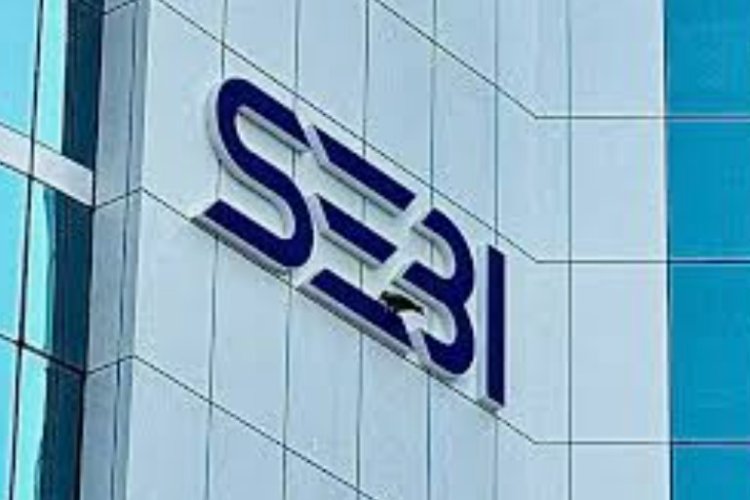
SEBI probe: The Securities and Exchange Board of India has taken a crucial step towards restoring investor confidence by announcing the formation of a high-level committee to review conflicts of interest, investments, and liabilities among its board members. The decision, made during its latest board meeting, comes alongside a slew of other regulatory updates. The committee is expected to submit its recommendations within three months, which will then be presented to the SEBI board for further consideration.
The establishment of this committee follows allegations of conflict of interest against former SEBI chairperson Madhabi Puri Buch. For India’s the securities markets watchdog, maintaining the highest standards of probity, integrity, and transparency is not just desirable but essential.
READ | India-China ties: Trump’s trade war may spark Asian realignment
Why SEBI’s integrity matters
As the regulator of India’s securities market, SEBI oversees a sector that plays a pivotal role in the country’s economic development. With trillions of rupees at stake, its decisions—ranging from approving initial public offerings (IPOs) to penalising market manipulation—directly affect companies, investors, and the broader economy. Trust in the market regulator forms the bedrock of the financial system. Both domestic and foreign investors must have confidence that SEBI acts impartially and in their best interests. Any hint of opacity or conflict of interest risks eroding this trust.
In 2023, Madhabi Puri Buch, then chairperson of SEBI, faced serious allegations—mainly surrounding potential conflicts of interest. US-based short-seller Hindenburg Research, now defunct, alleged that Buch and her husband Dhaval Buch had links to obscure offshore entities involved in the Adani money-laundering scandal.
The timing couldn’t have been worse. The Indian markets were on a strong bull run, among the best-performing globally, and these allegations threatened the credibility of the regulator itself.
Though Buch denied most of the allegations, the episode exposed the vulnerability of even the most respected institutions to reputational damage. Unproven claims can cast long shadows, deterring investor confidence and potentially destabilising the markets.
Tuhin Kanta Pandey, who took over as SEBI chairperson on March 1, has acknowledged the need to rebuild trust and eliminate the culture of opacity. SEBI now faces systemic challenges that demand clarity: What constitutes a conflict of interest? What must be disclosed? How should it be reported? Where should complaints be lodged? These are critical questions that the HLC has been tasked with answering.
High-level committee has its task cut out
The High-Level Committee will consist of distinguished experts drawn from constitutional, statutory, regulatory, governmental, private sector, and academic backgrounds. It has been mandated to conduct a thorough review of SEBI’s governance framework. Among its priorities are the evaluation of disclosure norms related to property holdings, investments, and liabilities. It will also work on designing effective mechanisms to address conflicts of interest among SEBI board members and senior officials, including the chairperson. Furthermore, the committee is expected to propose robust systems for oversight and enforcement to ensure uniform standards of accountability.
The committee is expected to submit its report within three months. If its recommendations are effectively implemented, they could pave the way for a transparent and equitable governance framework that holds every SEBI official to the same high standards. Crucially, the HLC will function independently, thus distancing the review process from SEBI’s internal operations. This external oversight is seen not merely as a reaction to past controversies, but as a proactive and forward-looking measure to safeguard the integrity of the regulator.
Other key reforms
SEBI’s recent board meeting also brought several significant reforms. One of the most notable was the decision to double the disclosure threshold for foreign portfolio investors (FPIs) from ₹25,000 crore to ₹50,000 crore. This move reflects the expansion of the Indian market, with cash equity trading volumes more than doubling since FY 2022–23.
The board also proposed strengthening the appointment process for Public Interest Directors (PIDs) and Key Managerial Personnel (KMPs) in Market Infrastructure Institutions (MIIs). For instance, governing boards of MIIs will now be required to provide a clear justification if they choose not to reappoint a PID. This provision is designed to reinforce transparency and merit-based decision-making in these critical market institutions.
These reforms indicate that SEBI is not only demanding higher disclosure standards from market participants but is also holding itself to the same expectations—an essential hallmark of credible regulation.
SEBI probe and implications on India’s financial future
The market regulator’s commitment to probity has consequences that extend beyond its own institutional reputation. It carries significant implications for the integrity of India’s financial ecosystem and the country’s global investment appeal. A regulator perceived as ethical and impartial enhances India’s attractiveness to foreign investors, especially those concerned about governance risks.
India has recently seen substantial sell-offs by foreign institutional investors. While this trend may be partly attributed to global factors, the uncertainty surrounding SEBI’s credibility may also be playing a role.
Failing to address these issues could lead to a sharp decline in investor confidence, reduced capital inflows, a slowdown in economic growth, and increased financial instability. In this context, SEBI’s current efforts are not only timely but also vital. Upholding transparency and integrity is not just a moral obligation—it is an economic necessity.
